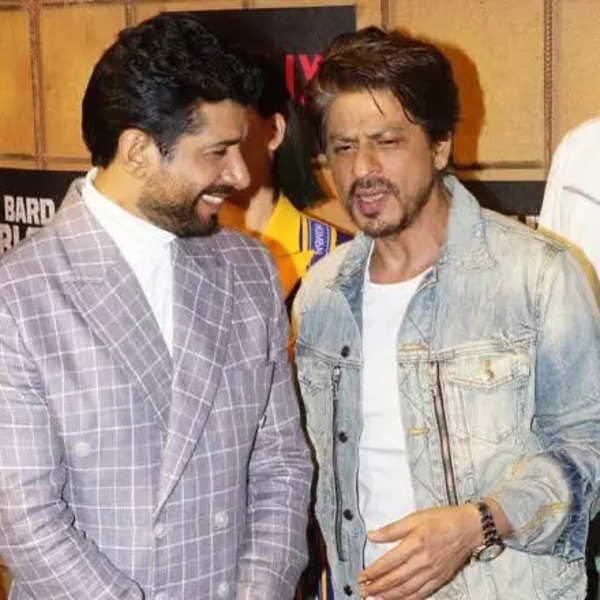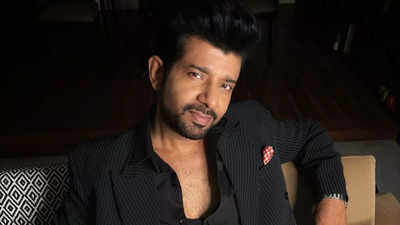[
]
Vineet Kumar Singh, known for his versatile acting prowess, has carved a niche in Indian cinema with compelling performances in films like Mukkabaaz and Gangs of Wasseypur. In a candid conversation with ETimes, the actor opened up about his role as Avinash Patwardhan, an Army Intelligence Officer, in the political thriller Match Fixing. Vineet shared his deep connection with the Defense Forces, his preparation process, and the challenges he faced while bringing this layered character to life. The conversation also delved into his struggles, inspirations, and relationships with cinematic stalwarts like Anurag Kashyap, Shah Rukh Khan, and Karan Johar.
Tell us something about Match Fixing. How did you prepare for this role? What challenges did you face to create this character?
Match Fixing is a political thriller. I am being introduced as Avinash Patwardhan, an Army Intelligence Officer. When the director and producer came to me with the role, one of the main reasons I accepted was my connection with the Defense Forces. Since childhood, I’ve been inclined towards working for the Defense Forces. While I couldn’t wear a uniform in real life, acting gave me the chance to wear an Army uniform. I thought, “Let’s do it.”
Before this, I had the opportunity to wear an Air Force uniform in Gunjan Saxena. This is something personal for me – anything related to the Defense Forces excites me. That’s how the film began.
As for the character, he’s very layered and complex, with many shades. Being an Army Intelligence Officer, he works undercover in the field, where he hides his real identity. When in uniform, his body language and approach are different. But when undercover, his identity changes completely. This duality gave me the chance to play multiple characters in a single film. What more could an actor want?
How did this role compare to the one in Gunjan Saxena? Which did you enjoy more?
Obviously, this one. It allowed me to explore more dimensions. Every film has its own challenges and demands a different style. Gunjan Saxena was about an Air Force Officer, so the preparation was different. Here, the character is an Army Officer with fieldwork responsibilities. I worked hard to make the portrayal authentic.
On set, retired Colonel Ahluwalia was there to guide me. Before every scene in uniform, I’d consult him to ensure everything was accurate – whether the cap was at the correct angle, the badges were properly placed according to my rank, or the salute distance was appropriate. Even small details like these mattered.
Recently, there was a screening for Army personnel at the Manekshaw Auditorium in Delhi. The response was overwhelming. Agniveers, retired officers, their families, and children all loved it. They even shared their own stories. It was a very special moment for me.
How did it feel playing such a central role? Did you enjoy the physical challenges?
I’ve always sought roles with big responsibilities. That’s why I wrote Mukkabaaz for myself. I’ve also played leads in Rangbaaz and Rangbaaz Season 3, and audiences loved it. As the lead in Match Fixing, I hope viewers will appreciate my work again. It’s crucial for an artist to receive audience love – it fuels experimentation and creativity.
What’s your process for building a character? Does the character stay with you after the film ends?
I enjoy exploring the unfamiliar. Be it Mukkabaaz, Ugly, or Gangs of Wasseypur, each role taught me something new. I listen closely to the director and writer to understand their vision. I read the script repeatedly, diving deep into the details. The script itself often guides me. If the character requires physical preparation, I dedicate the necessary time to it. I also try to understand the character’s world – where they come from, their societal background, and their motivations. This makes approaching scenes easier.
Once the film is done, the character usually leaves me naturally. But Vineet is always at the center – Vineet goes to the set, performs, and then comes back home. Some characters linger a bit longer, but I’ve learned how to move on after wrapping up. My process is self-learned – I didn’t train at institutions like NSD or FTII. Over time, I’ve found my own methods to connect with and then detach from a role.
You’ve carved a niche for yourself without formal training. How has that shaped your journey?
It’s been unique. Nature has its way of presenting challenges, pushing us to discover new paths. I’m grateful for the opportunity to experiment and tell diverse stories. The response to films like Mukkabaaz, Sia, and now Match Fixing motivates me to keep exploring. This year, I’m working on several films, each with its own flavor. I hope audiences continue to support and inspire me to take on new challenges.
So, to be successful, the struggles you had to face – whatever you did – did it affect your personality or profession?
Yes, it does. When the struggle is long, it hurts. I made mistakes. Like, I worked hard for Mukkabaaz. I am telling the truth, everyone works hard. Every artist works hard. Films are made with hard work; it takes a lot of hard work. But in Mukkabaaz, I worked very hard – I wrote songs, I wrote the film. People get tired in 1-2 hours; I used to train for 4 hours a day, sometimes 7 hours. So my expectations increased. I thought things would change a lot for me.
And when things didn’t go as expected, it hurt. Because of that, I made some mistakes. Like, why am I not getting those opportunities? Why am I not getting a chance to work with those directors? Why am I not getting different types of films or offers? These things used to hurt me, and I used to get angry. And I am not like that. I have a selfless approach – maybe that’s why I was able to struggle. If I thought, “I don’t have this or that,” I still remained positive.
But when things didn’t go as expected, it hurt me a lot. Many times, I wasn’t myself, and I said some bad things. Later, I realized that this is how people learn, and these things don’t matter. Maybe I never intended to hurt anyone, but I was hurt inside. I was broken inside because I didn’t get those offers or things.
And then COVID came, making it more difficult for me. So you can understand – I didn’t know what to do. As an artist, I wrote a film and worked so hard. But why isn’t it happening? I am happy for others, but when I looked at myself, I wondered, “Where am I falling short?” So I used to get angry and said some things in anger. Later, I realized I have to change myself.
And now, I don’t care. I am calm, and I worked on myself. I will work harder and differently. So I have been working continuously for the last 2-3 years.
Did you ever feel that you should stop acting?
No, never. Never. Even when I didn’t have work, I used to think, “I will do something.” And now, I have a lot of work. I used to think, “How can I take myself further? How can I be a part of better films? How can I work with those directors with whom I want to work? How can I achieve more success in my career so that I can naturally be in their wish list?” So this is how I think, and I keep working on myself.
Anurag Kashyap has been very important in your career. How has your relationship evolved? And your experience with Shah Rukh Khan and Karan Johar?

I have done six films with Anurag sir. I met him for the first time in 2009, and I got a chance to work a lot. I would like to do more. He always gave me a chance to play different roles – be it Ugly, Bombay Talkies, Gangs of Wasseypur, or Mukkabaaz. When you get a role you haven’t done before, as an actor, you grow. I am really grateful for that.
With Shah Rukh sir, as an actor on screen, I didn’t get a chance to work together. But I have been a fan of Shah Rukh sir. We used to go to college to watch his films. We still go to watch his films. I was fortunate – at Red Chillies, I did the shooting for Bard of Blood and got the offer for Betaal. So, I am really grateful for that too.
After Mukkabaaz, I went home with my sister and my girlfriend, who is now my wife. Shah Rukh sir had 25 guests, but he gave 1-1.5 hours to the three of us. He said, “I spend a lot of time with these people; this is the first time you have come. You are special to me.” His magical personality has a magnet in it – that’s very beautiful.
And even now, whenever I meet him, I meet him with a lot of love. I don’t feel like he is so, so, so big. It feels like I’m talking to my elder brother. So this is my equation with Shah Rukh sir, and I would like to work with him in the future.
As for Karan Johar sir’s production house, I got a chance to do Gunjan Saxena. And before that, I did another film – Gori Tere Pyaar Mein. So, I would like to do a hat-trick with a big film. I stay in touch with Karan Johar sir. I often shout at him, hoping my shout turns into reality, and I can do a good film in his production house or in his directorial.
What’s next for you?
This year, I have several projects lined up:
Super Boys of Malegaon by Reema Kagti
Jaat by Mythri Movie Makers (Pushpa producers)
A Kabir Khan show for Amazon
Rangeen, where I play the lead
Anurag Kashyap’s Nishanchi
I’m looking forward to experimenting more and reaching a larger audience.
[
]
Source link
